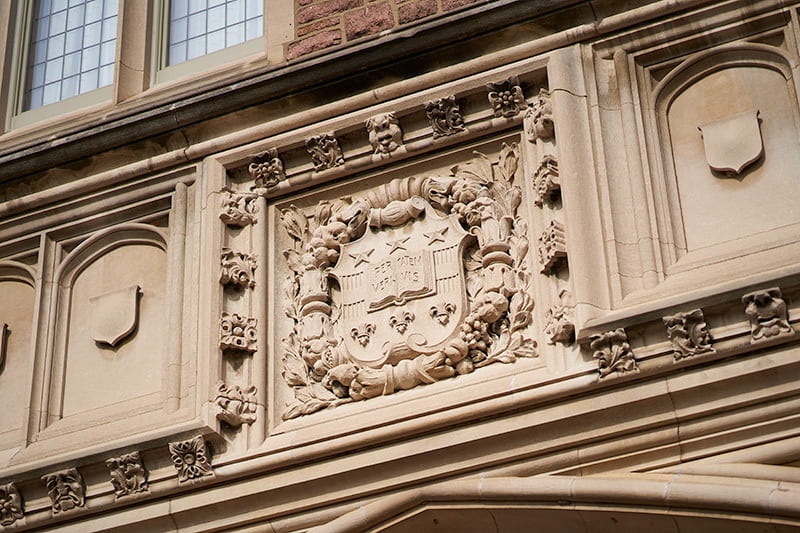There’s no question that recent world events have tested the mettle of campus communities at colleges and universities across America. WashU is no exception. The terrorist attack of October 7 and the subsequent turmoil and loss of innocent lives in the aftermath have inflamed more than just the Middle East, including in close-knit communities like ours.
Expressions of concern, displays of support – and protest – are all anticipated and should be welcomed and protected on university campuses, here and elsewhere. Antisemitism, Islamophobia, and intimidating or threatening speech are never acceptable – and should be condemned by all members of a community whenever they occur. We have made this clear at WashU.
In times of stress and challenge, we find out who we are. At WashU, our students, faculty, and administrators have managed the current taut environment admirably. Protests have taken place, speeches have been heard, deeply held views have been expressed, and in most cases, these have been done in a manner that respects our community standards. The response of the university community has reflected a shared level of respect for one another and for the campus home we share.
We commend the behavior of the vast majority of the WashU community. This is not to say there haven’t been challenges, some of them painful. We are firmly committed to upholding the fundamental value of free expression. Academic freedom is a cornerstone of our institution and we fiercely protect it. In recent months, our commitment has been put to the test. We have had to reckon with difficult questions about how to respond to speech that crosses a line into territory that many in our community find unacceptable, hurtful, or even harmful.
In light of these challenges, we wanted to share some thoughts about the current environment and comment on the responsibilities that attach themselves to freedom of speech.
There have been statements made by members of our community – on social media, in the media, and elsewhere – that seem at best misplaced, and at worst, hurtful and disrespectful. Individuals are certainly entitled to their opinions and to express them freely, however offensive or wrong-minded they may at times be. At the same time, we also have a responsibility to look into instances where members of our community feel that speech crosses the line into harassment or intimidation, which we will not tolerate. Let there be no room for doubt we take this kind of allegation seriously and follow up accordingly. We believe these statements, while difficult to justify, also provide a teachable moment for our community.
While we may personally find some of the opinions expressed in public forums ill-informed and tainted with implicit prejudice, we vigorously protect the right to express these views. At the same time, we condemn the use of antisemitic phrases, Islamophobic rhetoric, the endorsement of criminal activity, or other language that is seemingly deployed in order to incite. Freedom of speech is a constitutional right with an implicit social contract – one which anticipates that respectful, responsible members of the community will each do their part to live our shared values. These values include the open and respectful exchange of ideas free from harassment, discrimination, or intimidation. To be clear, these values do not represent literal constraints on our freedoms, but rather an expectation that we will exercise our freedoms with their attached responsibilities as members of a community. Those responsibilities include being thoughtful in our engagement with each other and our broader community with the intention of seeking reconciliation and understanding, and reaching out our hands and engaging with those of different views.
For example, the hatred associated with the phrase “from the river to the sea” is well understood by most in our community – and so, too, is the emotional and psychological impact of that phrase. To use that phrase, particularly in circumstances where we know it will have a harmful impact, is well beneath the dignity of every member of our community. This type of language does not build understanding; its contribution to the community is ill will, anger, distress, and sadness.
To our faculty – you are entitled to your opinions and should express them freely. At the same time, as educators, we hope you will consider the lessons you are teaching through your actions. You have an opportunity to express your views and a linked responsibility to do so in a manner that does not inflame members of our community – particularly students, who you are here to teach. We all should model concern for our students and our colleagues.
We believe in the WashU community. We are optimistic that, together, we will continue to weather this storm with dignity and respect for one another.
Andrew D. Martin
Chancellor
Andrew M. Bursky
Chair
Washington University Board of Trustees
